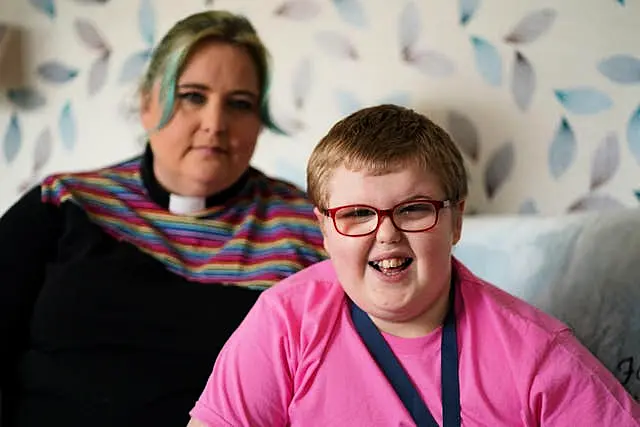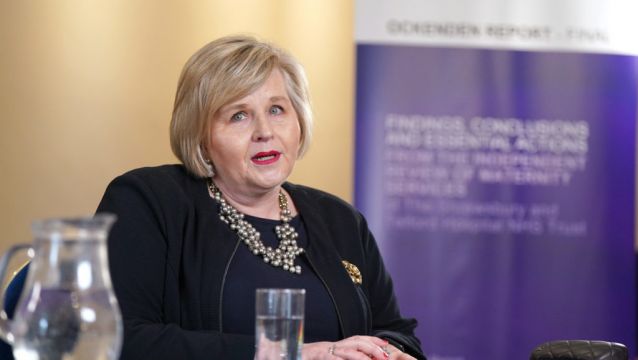Some 201 babies and nine mothers could have – or would have – survived if an NHS trust had provided better care, an independent inquiry into the UK’s biggest maternity scandal has found.
Shrewsbury and Telford Hospital NHS Trust presided over catastrophic failings for 20 years – and did not learn from its own inadequate investigations – which led to babies being stillborn, dying shortly after birth or being left severely brain-damaged.
Several mothers died after failings in care, while others were made to have natural births despite the fact they should have been offered a Caesarean.
Some babies suffered skull fractures, broken bones or developed cerebral palsy after traumatic forceps deliveries, while others were starved of oxygen and experienced life-changing brain injuries.
The damning report, led by maternity expert Donna Ockenden, examined cases involving 1,486 families, mostly from 2000 to 2019, and reviewed 1,592 clinical incidents.
The report found there were “repeated errors in care which led to injury to either mothers or their babies”.
A review of 498 stillbirths found that one in four had “significant or major concerns” over the maternity care given, which, if managed appropriately, might, or would have, resulted in a different outcome. Some 40 per cent of the stillbirths were never investigated by the trust.

There were also significant or major concerns over the care given to mothers in two thirds of cases where the baby had been deprived of oxygen during birth.
Furthermore, nearly a third of neonatal deaths (within the first seven days of life) had “significant or major concerns” over care which might have resulted in a different outcome.
Overall, 12 deaths of mothers were investigated, none of whom received care in line with best practice at the time. In three-quarters of these cases, care “could have been significantly improved”.
The report noted that internal reviews of the deaths were poor, with some women blamed for their own deaths.
It said staff were “overly confident” in their ability to manage complex pregnancies or where abnormalities were noted in pregnancy, and there was a reluctance to involve more senior staff.

There was also a culture of “them and us” between midwives and obstetricians, which meant some midwives were scared to involve consultants.
Investigators pointed to “repeated failures” to escalate concerns, delays in women being admitted to the labour ward, delays to women being assessed for emergency intervention or to be seen by consultants.
Ms Ockenden’s team of investigators found families were locked out of reviews when things went wrong and were often treated without compassion and kindness.
The trust, which is currently ranked inadequate, was also found to have repeatedly failed to adequately monitor babies’ heart rates, with catastrophic results, alongside not using drugs properly in labour.
Leaders and midwives were determined to keep Caesarean section rates low, despite the fact this repeatedly had severe consequences.

In an interim report published in December 2020, Ms Ockenden noted that for around 20 years the Caesarean section rate at the trust was consistently 8-12 per cent below the English average, with this being held up locally and nationally as a good thing.
In her new report, Ms Ockenden noted that the leadership “up to board level” were in a constant state of “churn and change”.
She said the trust was focused on other clinical areas and there was “significant turnover” at Board and management level, which meant maternity issues remained “largely unseen”.
The inquiry identified “hundreds of cases” where the trust failed to undertake serious incident investigations.
Tory MP Jeremy Hunt, who ordered the inquiry in 2017 when he was health secretary, said earlier the numbers were “worse” than he could have imagined and he hoped the report would be “a wake-up call”.
As well as major issues within the trust, the report pointed the finger at eight external bodies, which did not effectively monitor the care provided.
Richard Stanton and Rhiannon Davies, who have campaigned for years over the poor care, lost their daughter Kate hours after her birth in March 2009.
The trust noted the death but described it as a “no harm” event, although an inquest jury later ruled Kate’s death could have been avoided. The trust still insisted its care had been in line with national guidelines.

In her report, Ms Ockenden said there was evidence of poor investigation of three baby deaths (Kate Stanton-Davies and babies Joshua and Thomas) that all happened within the same year.
She said there was a lack of transparency and a “lost opportunity” to prevent further baby deaths occurring.
Another couple who have led the campaign for safer care are Kayleigh and Colin Griffiths, whose daughter Pippa died in 2016 from a Group B Strep infection. A year later, a coroner ruled her death could have been avoided.
A criminal investigation into what happened at the trust is being carried out by West Mercia Police.
Ms Ockenden said staff had been advised by managers not to take part in the inquiry, while others said they were still concerned about maternity practices at the trust.
Louise Barnett, chief executive at the trust, said improvements had been made and were continuing, adding: “Today’s report is deeply distressing, and we offer our wholehearted apologies for the pain and distress caused by our failings as a trust.”







